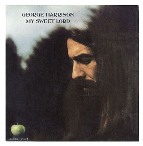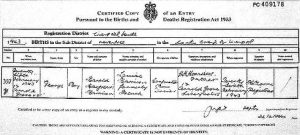In 1970, Paul McCartney announced that the Beatles were to split, the four members of the band coped with news better than most of their fans. John was the first to have solo success with Give Peace A Chance under the guise of The Plastic Ono Band, but George was the first to have a UK number one single.
George Harrison felt that his songwriting deserved more attention from John, Paul and George Martin. Even though he had written the excellent Beatles’ tracks Here Comes the Sun and Something on their last album, Abbey Road, he was only permitted two songs. He also co-wrote If I Needed Someone which was a hit for the Hollies, Badge for Cream and without credit, Hurdy Gurdy Man for Donovan.
When The Beatles disbanded, he teamed up with the producer, Phil Spector, and made rock’s first triple album, All Things Must Pass, which despite being twice as expensive as a single album, it made number one on the UK album chart for eight weeks, although many sources will list it as a number four hit. The reason for this was there was a six-week postal strike during February and March of 1971 and Record Retailer didn’t bother compiling a chart during that time whereas the more important publications, Melody Maker and NME did via telephone calls to shops. Years later, the official Charts Company recognised this and agreed to use the Melody Maker chart for that period.
The key single was the inspirational My Sweet Lord, which George described as “a song to live up to”. He was thrilled to be singing both ‘Hallelujah’ and ‘Hare Krishna’ in the same song. Harrison began writing this while on tour with Delaney & Bonnie in Copenhagen. Delaney Bramlett assisted with the song but never pursued co-writing credit. He gave the song to Billy Preston who had been signed to Apple records and he recorded it in early 1970, George produced Billy’s version but nothing came of it so George recorded it himself.
Although his inspiration had been the 1969 hit by The Edwin Hawkins Singers’, Oh Happy Day, he was accused of plagiarising a 1963 hit by The Chiffons, He’s So Fine. It seems odd that Spector, who was well acquainted with the New York girl group scene, hadn’t drawn attention to the similarity. Joey Molland of Badfinger who played rhythm guitar and sang backing vocals on the session says, “I was struck by the similarity but I didn’t feel it was my place to say anything. We relied on The Beatles for work.”
Bobby Whitlock, who played keyboards on the track, remembered, “All during the sessions, the door would pop open and in would spring 3 or 4 or 5 Hare Krishna’s in their white robes and shaved heads with a pony tail coming out the top. They were all painted up, throwing rose petals and distributing peanut butter cookies.”
A few years later, Allen Klein’s management contract with George Harrison was terminated and back in New York, he acquired the rights to Ronnie Mack’s song, He’s So Fine – Mack himself had Hodgkins’ disease and died in 1963. Was it revenge that prompted Klein to sue George? In 1976 a judge ruled that George was “not guilty of stealing the tune but there was a copyright infringement”. His unconscious plagiarism cost him £1m. George responded by writing and recording the witty This Song. In 1979, Klein was jailed for income taken from illegal sales of George’s charity album, The Concert For Bangla Desh.
On Boxing Day in 1975, George Harrison parodied My Sweet Lord during Eric Idle’s Rutland Weekend Television Christmas special by turning it into The Pirate Song. George had further hit singles during the 1970s, Bangla Desh (1971), Give Me Love (Give Me Peace On Earth) (1973) and Blow Away (1979). He made a top 20 return in 1981 with All Those Years Ago, his tribute to John Lennon who had been murdered the previous year. Six year after that he scored a UK number two and a US number one with Got My Mind Set On You, a remake of a James Ray 1963 track.
This week marks the 10th anniversary of George’s passing. Like Freddie Mercury last week, their best known work was re-released and My Sweet Lord was back at number one. It knocked off Aaliyah’s More Than A Woman making it the only time in UK chart history there were two back to back posthumous chart toppers.
In the 1980s George believed that his birth was wrong and thought he was born at 18 minutes to midnight on the 24 February rather than at 12.10am on the 25th. It turns out he was wrong because after his death, his birth certificate was located and it shows as the 25th. So now we know!

